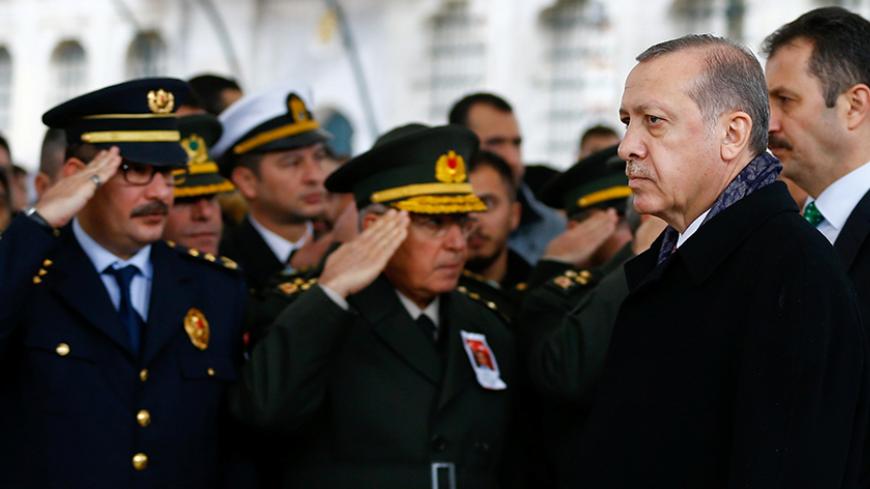After the twin bombing attacks by the Kurdistan Freedom Falcons (TAK) in Istanbul that killed 36 police and eight civilians, the Turkish state is stark raving mad and out for revenge. Can this mood impede rational decisions by the state?
Around 10:30 p.m. Dec. 10, two suicide-bombing attacks — one vehicle-borne, the other by a pedestrian — after a soccer game near the Vodafone Arena stadium in Istanbul shocked the country. The terror attack killed 36 police and eight civilians and wounded more than 160 people. The attacks were claimed by the TAK, which I had earlier described as being "designed as a pre-emptive strike force” as the proxy of the Kurdistan Workers Party (PKK).



